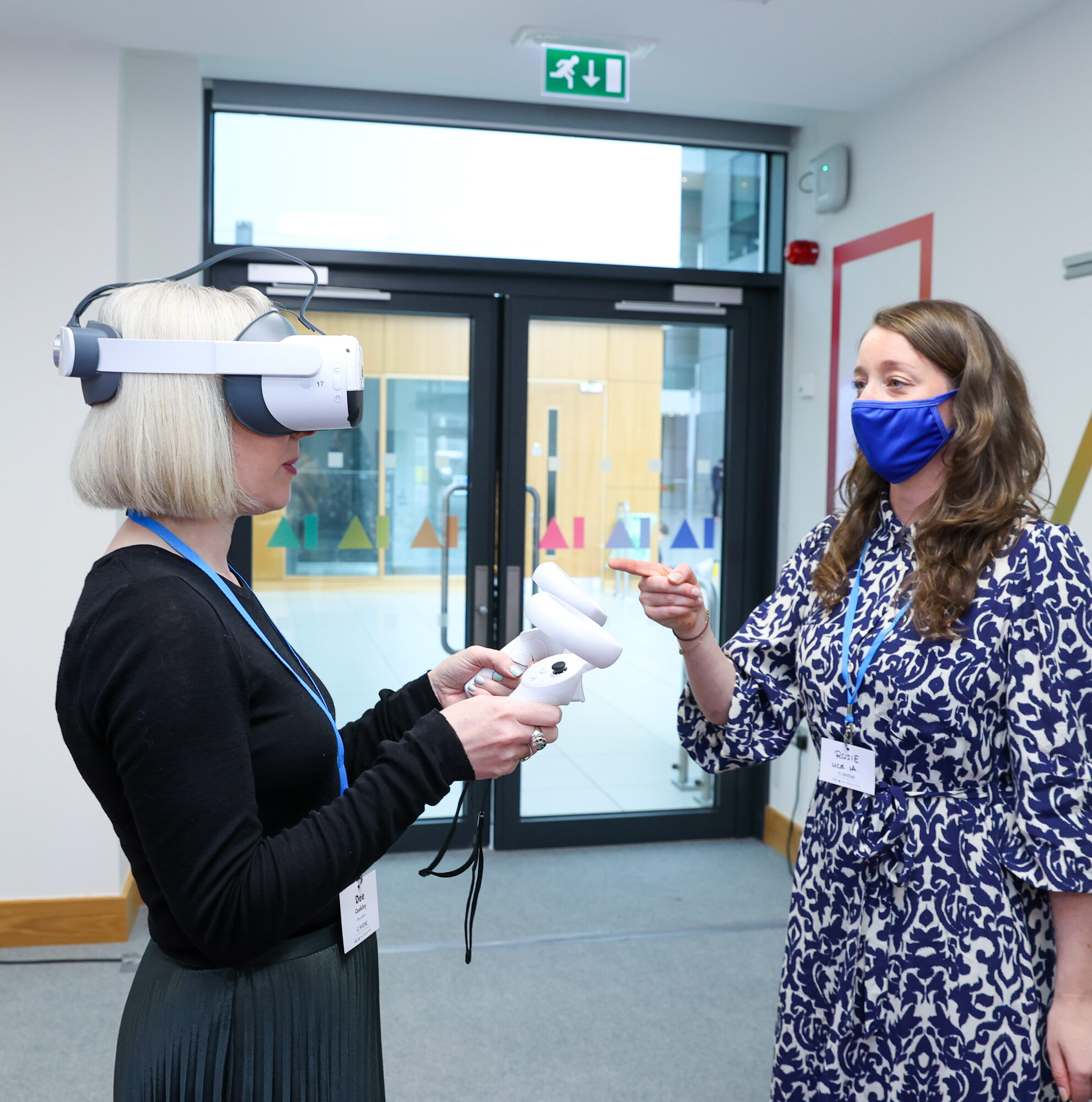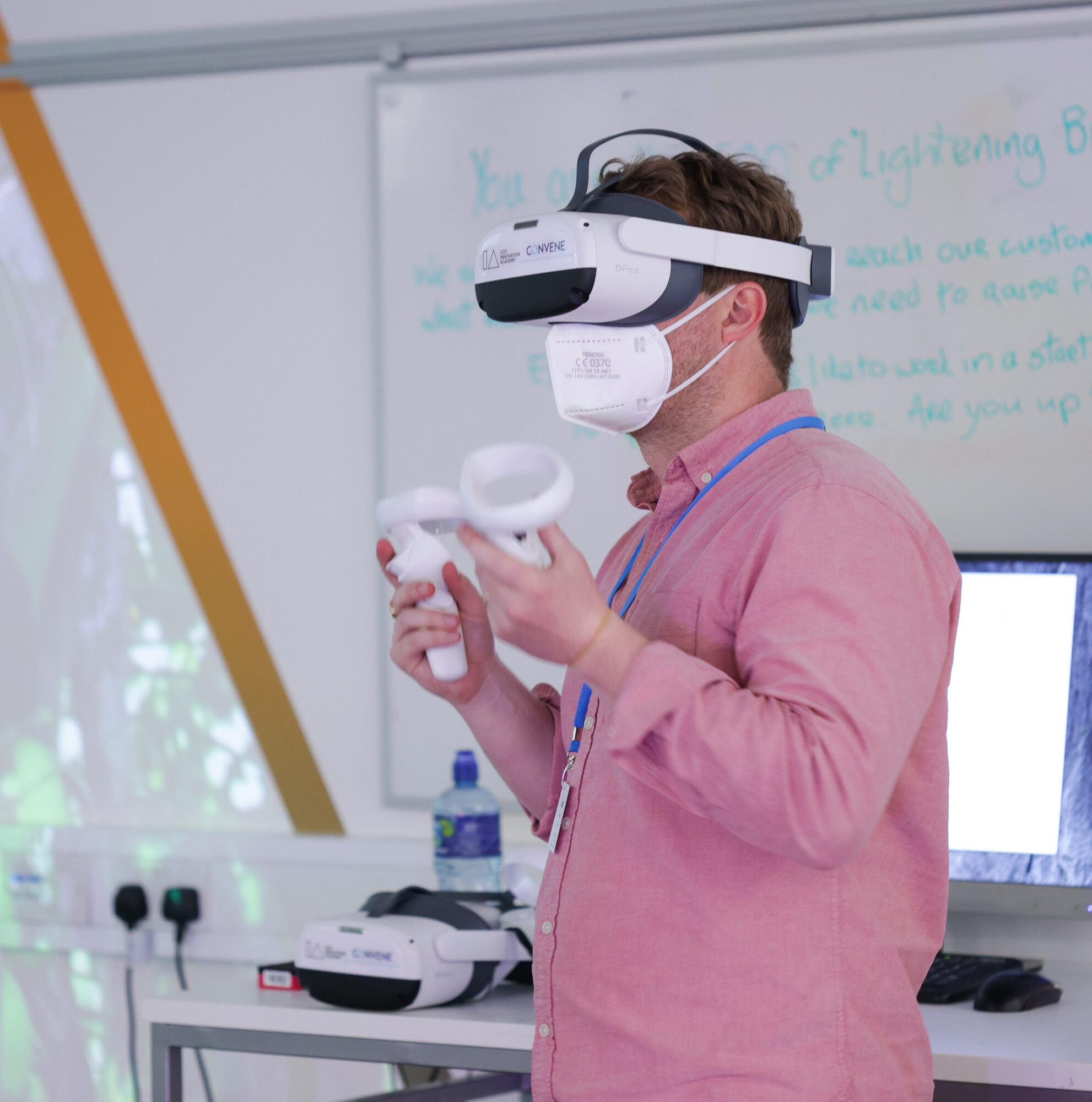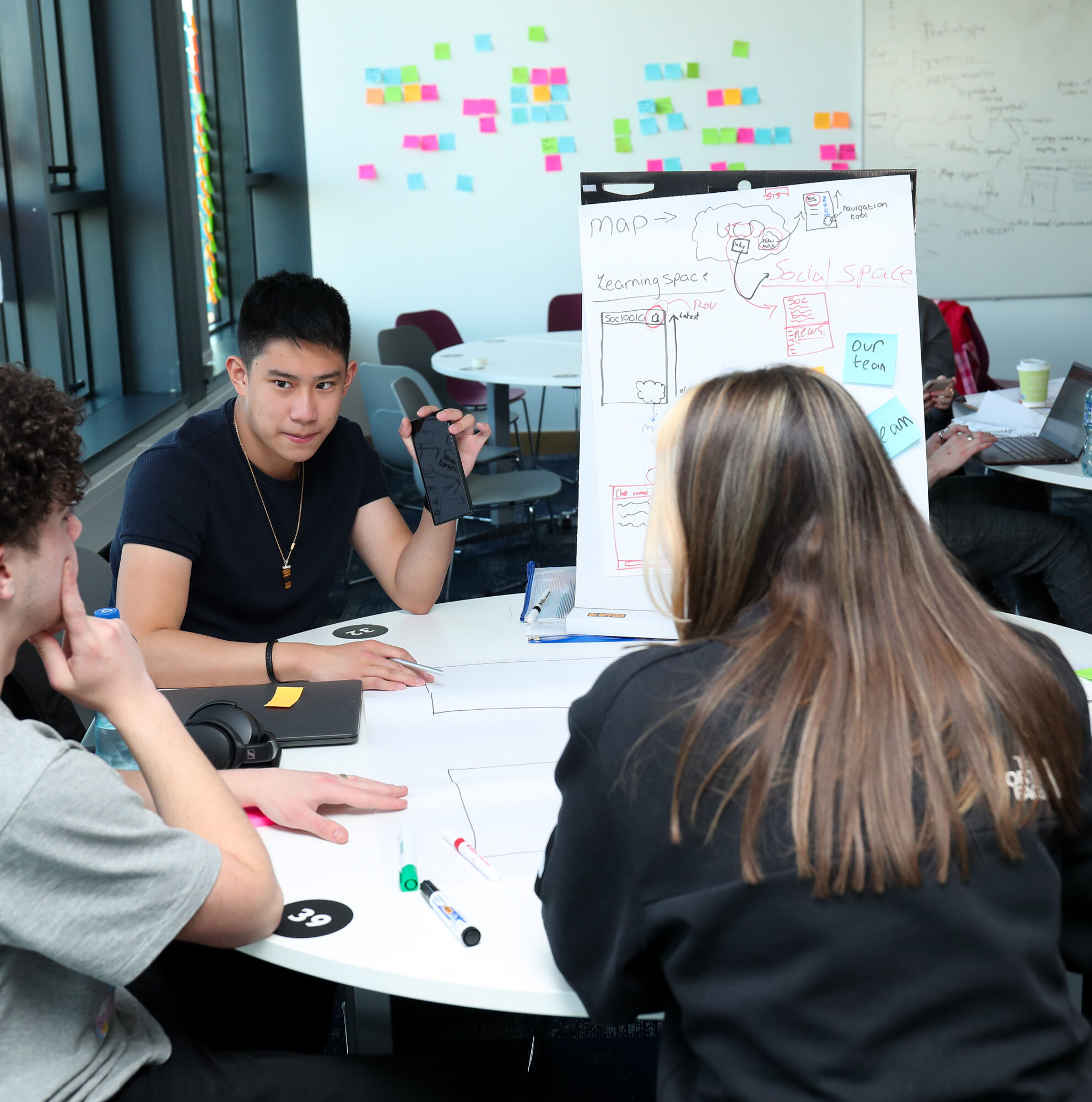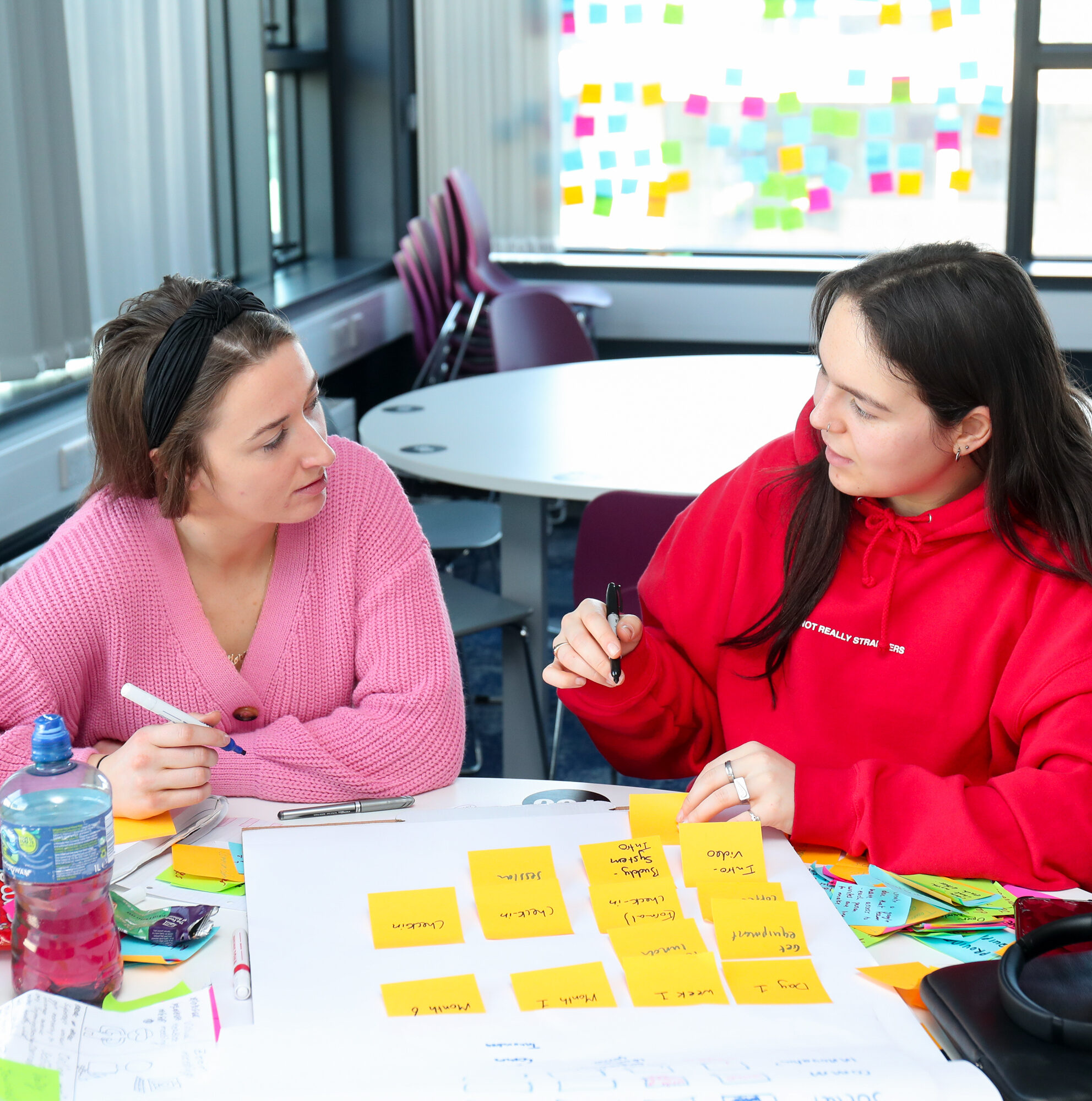There I was, monitoring a production line, assessing the different bicycles coming across the carousel, and being asked to make decisions about which bicycle to put all of my company’s start-up might behind based on various client profiles and market research. Should I go for the mountain bike or the city slicker? The lighter option or something a little more sturdy? A fairly significant decision to make particularly since it’s safe to say my manufacturing acumen is nil, and I am a complete novice in the biking world.
Lucky then that the production line I was monitoring was in the virtual reality space, and the start-up business about which I was making such substantial decisions is part of a new module, launching in September at UCD Innovation Academy called Virtual Reality for Future Skills.
Trainee pilots have been using virtual reality for years to help them learn how to land a plane – it would be far too risky otherwise. Now though, as virtual reality headsets are becoming more accessible, there are myriad opportunities to use this technology.
You can immerse yourself in the world of refugees displaced by war for example, or spend time in the mind of Vincent Van Gogh. So why not bring virtual reality into the classroom in new and compelling ways.
According to a study from PWC, “V-learners were 4 times more focused during training than their e-learning peers and 1.5 times more focused than their classroom colleagues.”
Since its inception in 2010, UCD Innovation Academy led by founder Professor Suzi Jarvis has focused on ensuring students are prepared for the Fourth Industrial Revolution.

Call them disrupters if you will but they have recognised that the traditional mode of education is obsolete – as Innovation Academy entrepreneurial specialist, Maurice Knightly says, “the age of the sage on a stage is over.” All Academy modules are infused with the conviction that students need to cultivate an entrepreneurial mindset, and reconnect with their creativity if they are to be best equipped to embrace the opportunities and tackle the challenges of an unknown future.
The Academy recognises the importance of transversal – or soft – skills: how do you relate to other people in the workplace, the art of persuasion, the ability to recognise your strengths and the strengths of those around you, and how to leverage both. And the Academy is not alone.
According to LinkedIn’s 2019 Global Talent Trends, 92% of recruiters say that transversal or “soft skills” matter “as much or more than hard skills.”
“Through this module, UCD Innovation Academy is adding a new – virtual – dimension to its mission to equip students with the skills they need to excel in the future,” says Eleanor Kelly, who leads Convene at UCD Innovation Academy, the government’s Human Capital Initiative that funds this module. “The Metaverse is billed to become all pervasive and powerful, revolutionising everything from finance to healthcare – we’re excited to give students from all disciplines a grounding in virtual reality skills but crucially to support them to learn communications, teamwork and leadership and more – skills that will only grow in importance as the metaverse emerges.”

In this module, students will spend time in virtual reality engaging with “Lightning Bikes,” a startup company that is about to launch. They will grapple with real-life-based challenges and opportunities that any startup has to navigate as they make their way to launch day: choosing the bike model is just one aspect. They will also go through the hiring process – assess CVs, listen to candidates’ interviews and make decisions about who they would hire and why. They will research and determine their target market and how to reach them. They will make decisions about their marketing approach? Do they want to use influencers and if so, who? And then, there is the pitch – a virtual pitch room where they will make their best argument.
“One of the benefits of virtual reality is that it is a space where you can go back and reexamine your decisions,” says Rosie Leonard-Kane, a facilitator of the module. “You can go back in and redo each room and see what would happen if you did something differently.”
Virtual reality though is only part of the module. Students, who will have spent their time in VR working independently, and making what they themselves see as the best decisions for the start-up, will then come back into the physical space, and work with their peers, who will be, in keeping with the IA’s philosophy, from a variety of disciplines.
They will need to work collaboratively to agree on the best approach. In this way, they will hone their transversal skills. They will need to understand alternate approaches, and navigate other students’ perspectives and convictions. Says Rosie, “Virtual Reality is the stimulus we’re using to have the conversations to prompt a deeper learning.”

UCD Innovation Academy has partnered with the global recruitment and training firm, Cappfinity on Virtual Reality for Future Learning.In their work across recruitment and development of employees, Cappfinity focuses on “performance, energy and use” i.e. a prospective candidate’s strengths – what they are good at, what they enjoy, and what they use often – and how they can build their career around those strengths. As part of the VR module, students do a strengths assessment.
Throughout the module and based on that strengths assessment, they will be encouraged to have confidence in the strengths they bring to the table, but also to recognise the strengths of their peers, and how best to leverage those strengths to ensure the best business outcome. Transversal skills in action.
Maurice sees virtual reality as a way to recreate the workplace experience so that it is as close to reality as possible. “The transversal skills students use within the experience are very real,” he says. With the workplace changing in dramatic ways, and Artificial Intelligence taking a front row seat, “What are humans for?” Maurice asks. “What is our role?”
He argues that although we don’t know what the jobs of the future will be, “some things will always be true: people’s confidence, their creativity, their decision making processes, their interaction with each other and their teamwork, are just so important.”
According to Oscar Lyons at Cappfinity, companies he works with are turning to Virtual Reality as a training tool – from interns to the executive suite. “This is what some of the most forward thinking companies are doing now,” he says. “For UCD Innovation Academy to be ahead of that curve, it’s pretty impressive.”

Author: Lucy Carrigan
Convene brings together Ireland’s two largest universities, University College Dublin and Technological University Dublin, to transform university and enterprise engagement in support of an innovative and agile Irish society and economy, powered by the workforce of the future. Convene is funded by the Human Capital Initiative, an historic investment in Irish higher education that’s future proofing graduates with relevant skills, identifying emerging needs from enterprise and promoting reform and innovation in higher education.
For more information, please contact Eleanor Kelly, Strategic Partnerships Lead at UCD Innovation Academy, Eleanor.Kelly@ucd.ie
![]()

